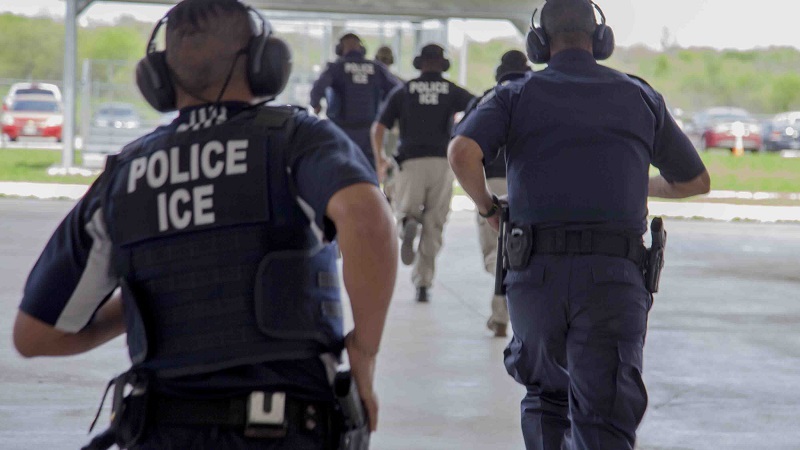Members of U.S. Immigration and Customs Enforcement's Enforcement and Removal Operations in training | ice.gov/
Members of U.S. Immigration and Customs Enforcement's Enforcement and Removal Operations in training | ice.gov/
People of questionable immigration status don't need to choose between getting themselves to safety during extreme weather events and hiding for fear of getting caught by Immigration and Customs Enforcement and Customs and Border Protection.
The Department of Homeland Security said as much in a Tuesday, Dec. 21 statement to "remind the public" that sites that provide emergency response and relief are considered protected areas — as in, protected from — ICE and CBP enforcement actions.
"To the fullest extent possible, ICE and CBP do not conduct enforcement activities at protected areas such as along evacuation routes, sites used for sheltering or the distribution of emergency supplies, food or water, or registration sites for disaster-related assistance or the reunification of families and loved ones," the news release.
The news release also is available in other languages besides English.
DHS is assisting federal, state, local and non-governmental agencies to support areas recently affected by tornadoes and other severe weather in the South and Midwest. DHS does not want to restrain people’s access to and engagement in essential services, according to the statement.
ICE and CBP may help in search and rescue, air traffic de-confliction, and other public safety missions, if the Federal Emergency Management Agency or local and state authorities ask, the statement said.
"ICE and CBP provide emergency assistance to individuals regardless of their immigration status and are not also conducting immigration enforcement in these roles," the statement said. "DHS officials do not and will not pose as individuals providing emergency-related information as part of any immigration enforcement activities."
ICE and CBP enforcement action guidelines about areas with special protection requirements have been in effect since Oct 27.
Disaster survivors, regardless of immigration status, also should not be afraid to FEMA assistance.
"FEMA does not collect information regarding immigration status or that of any member of an applicant’s household and does not proactively provide personal information to ICE or CBP for immigration enforcement," the statement said. "However, in rare circumstances, based on a specific request, ICE or CBP could request this information if a person poses a current threat to national security or public safety based upon an articulable risk of death, violence or physical harm to any person."




 Alerts Sign-up
Alerts Sign-up